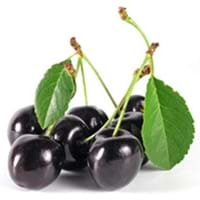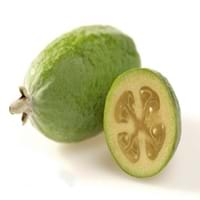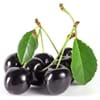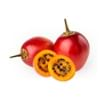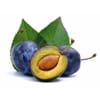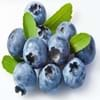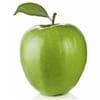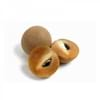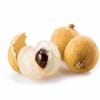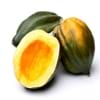Health Benefits
Anti-aging benefits, Anti-inflammatory properties, Arthritis treatment, Cancer prevention, Helps body to rest and sleep, Lower blood pressure, Prevents diabetes, Prevents strokes, Reduces risk of heart disease
Anti depressant, Cancer prevention, Reduces nervous tension, Treatment of alzheimer's disease, Treatment of Lung disease
General Benefits
Fights against infections, Fights Tooth Decay, Helps in weight loss, Relieves pain, Treatment of migraine
Digestive aid, Helps in weight loss, Improves blood circulation, Strengthens bones, Treatment of common cold
Skin Benefits
Anti-aging benefits, Fairness, Hydrates skin, Prevents skin cancer, Skin repair, Treatment of acne
Brightens and lightens complexion, Skin rejuvenation
Hair Benefits
Cure for hair loss, Increasing hair volume, Prevents hair loss, Strengthening of hair
Promotes longer and healthier hair, Protects hair
Allergy Symptoms
Abdominal cramps, Anaphylaxis, Diarrhea, Hoarseness, Itchy eyes, Nausea, Pollen allergies, Sore eyes, Vomiting, Watery eyes, Wheezing
NA
Side Effects
High doses of black cherry bark can be poisonous and even fatal.
Allergic reaction
Lactating Women
Not Available
Yes
Best Time to Eat
Best if taken as a breakfast (or empty stomach), Don't eat after meal, Morning time (before lunch)
As a snack in the late afternoon, Don't consume at night and before bed, Eat the fresh ones, avoid mixing with any other foods, don't eat after meal., Morning time (before lunch)
Vitamin A (Retinol)
Not Available
Vitamin B1 (Thiamin)
Not Available
Vitamin B5 (Pantothenic Acid)
Vitamin B6 (Pyridoxin)
Not Available
Vitamin B9 (Folic acid)
Not Available
Vitamin C (Ascorbic Acid)
Not Available
Vitamin E (Tocopherole)
Not Available
Vitamin K (Phyllochinone)
Not Available
Lutein+Zeaxanthin
Not Available
Phytosterol
Not Available
Calories in Fresh Fruit with Peel
Not Available
Calories in Fresh Fruit without Peel
Not Available
Calories in Frozen Form
Not Available
Not Available
Calories in Dried Form
Not Available
Calories in Canned Form
Not Available
Not Available
Calories in Juice
Not Available
Calories in Jam
Not Available
Calories in Pie
Not Available
Season
Summer
Autumn, Winter
Varieties
alabamensis, capuli , eximia and hirsuta
Anatoki, Gemini, Kaiteri, Kakariki, Pounamu, Unique, Apollo, Den's Choice, Kakapo, Mammoth, Opal Star, Triumph and Wiki Tu
Inside Color
Maroon
White
Origin
North America
Argentina, Brazil, Paraguay, Uruguay
Grows on
Bushes
Not Available
Soil Type
Not Available
Clay loam, Gravely loam, Sandy
Climatic Conditions
Cold
Cold, Warm
Facts about
- Black cherry is deciduous tree that belongs to the family of roses.
- Some foods made from Black Cherry fruit include jelly and wine.
- Inner bark of black cherry is used in the manufacture of cough syrup.
- Feijoa is called as "pineapple guava" in some countries.
- Feijoa tree is an ornamental plant that can also be used as hedge & windbreak.
- All parts of feijoa fruit are edible(skin is mostly discarded).
Top Producer
Turkey
New Zealand
Other Countries
Austria, Bulgaria, Chile, China, France, Greece, Iran, Italy, Macedonia, Poland, Romania, Russia, Serbia, Spain, Syria, Ukraine, United States of America, Uzbekistan
Australia, Azerbaijan, India, Japan, United States of America
Top Importer
France
China
Top Exporter
Turkey
New Zealand
Botanical Name
Prunus Serotina
Acca sellowiana
Synonym
wild black cherry, rum cherry and mountain black cherry
Feijoa sellowiana or Orthostemon sellowianus
Subkingdom
Tracheobionta
Tracheobionta
Division
Magnoliophyta
Magnoliophyta
Class
Magnoliopsida
Magnoliopsida
Family
Rosaceae
Myrtaceae
Species
P. serotina
A. sellowiana
Generic Group
Cherry
Myrtle
Difference Between Black cherry and Feijoa
We might think that Black cherry and Feijoa are similar with respect to nutritional value and health benefits. But the nutrient content of both fruits is different. Black cherry and Feijoa Facts such as their taste, shape, color, and size are also distinct. The difference between Black cherry and Feijoa is explained here.
The amount of calories in 100 gm of fresh Black cherry and Feijoa with peel is 63.00 kcal and Not Available and the amount of calories without peel is Not Available and 55.00 kcal respectively. Thus, Black cherry and Feijoa belong to Low Calorie Fruits and Low Calorie Fruits category.These fruits might or might not differ with respect to their scientific classification. The order of Black cherry and Feijoa is Rosales and Myrtales respectively. Black cherry belongs to Rosaceae family and Feijoa belongs to Myrtaceae family. Black cherry belongs to Prunus genus of P. serotina species and Feijoa belongs to Acca genus of A. sellowiana species. Beings plants, both fruits belong to Plantae Kingdom.
